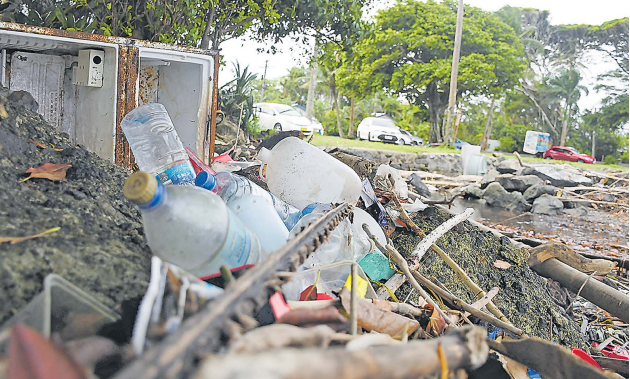There is a malaise, a pervasive sickness affecting our body politic, felt not only in the quiet disillusionment of our people, but in the very landscape itself. It is seen in the garbage strewn along roadsides, the plastics choking drains, streams, rivers, and the casual abandonment of waste in public spaces.
This environmental carelessness is not a separate ill; it is the physical manifestation of a deeper, ethical decay. The same disregard that pollutes our politics — the hollowing out of character and principle in public life — is reflected in how we treat our shared home, our environment.
At its core, this illness remains a systematic perversion of purpose. When politics abandons its moral imperative — the stewardship of the common good — and devolves into a transactional game, it teaches a corrosive lesson: that self-interest outweighs collective responsibility.
This is the cut-throat business of self-preservation that thrives in corridors of power. If those in power treat public trust as disposable, why should the citizenry treat public spaces with reverence?
The litter on the ground and in our waters, our seas, is the fallout from the betrayal in the halls of power.
Recent events cast this dynamic into stark relief. The conviction of a former prime minister for attempting to interfere with the police force is a necessary affirmation that no one is above the law.
Yet, it also forces a troubling question: does the pursuit of past wrongs sometimes mask a different kind of power play in the present?
This tension reveals the two corrosive ways this decay manifests.
First is the betrayal of language. “Justice” can become a polarised slogan, and “accountability” can be framed as “overreach.”
Similarly, we pay lip service to “cleanliness” and “sustainability” while our actions reveal a different truth. When words are severed from meaning in both politics and public life, the foundation for a shared reality crumbles.
Second is the normalisation of systemic corruption, which extends from high office to daily habits. It is the old model of a leader demanding the sacking of independent officers, and it is also the citizen, who dumps their household waste in a mangrove swamp, believing the rules do not apply to them.
It is a “someone else will handle it” attitude that infects both governance and civic behaviour, perpetuating a cycle where the system is exploited for personal convenience at the expense of the whole.
The consequence of this endless cycle is a profoundly sickened society, and its symptoms are unmistakable in our physical and civic environments:
m Civic Apathy and Cynicism: Just as citizens disengage from a political process they perceive as corrupt, they also disengage from their role as stewards of the environment. Why care for a public park if the government itself shows no care for the public trust?
m Social Polarisation and Disrespect: A leadership devoid of moral vision cannot unite, and a citizenry that sees its common spaces degraded loses a sense of shared destiny. The result is a fractured society where individual convenience trumps collective well-being.
m The Erosion of the Common Good: The concept evaporates, replaced by a desperate scramble for individual advantage. We see it when a leader implies transformative justice is “above his pay grade,” and we see it in the heaps of rubbish left behind — a tangible testament to the belief that we owe nothing to one another or to the future.
A nation finds itself in this stifling malaise when it tolerates a politics that has lost its soul, and a populace that mirrors this neglect in its daily actions. The burden of high office is to model a different, more principled future, but the responsibility does not end there.
The path forward begins with a collective demand for a restoration of public virtue that transcends partisan victory and personal convenience. It requires us to clean up our politics with the same urgency we must clean up our lands and waters.
For a nation that allows its principles and its environment to be trashed with equal abandon is a nation adrift, seeing its own internal decay reflected in the polluted world it has created.
RO NAULU MATAITINI is a member of the Bose Levu Vakaturaga. The views expressed herein are his and not of this newspaper.



